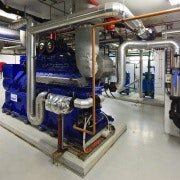Will the carbon tax push rates higher?
Research reports into perceptions of the carbon tax have been coming thick and fast and while they drift in and out of the media cycle, one survey should have drawn more attention than it did.
Released last Monday, an Essential Research survey found more Australians opposed to the legislation than in favour. Nothing new in that, as today's Nielsen poll shows, but the public response to the impact of the carbon tax on interest rates should have caused a double-take.
Twenty-two per cent of Australians surveyed thought interest rates would ‘increase a lot' because of the carbon tax. Another 18 per cent thought rates would rise ‘a little', while 38 per cent said they would be unaffected, 8 per cent said they would fall a little and 1 per cent said they would decline by a lot. That means four out of every ten Australians believe rates are about to climb higher thanks to the carbon tax.
It is a staggering statistic, which suggests two things: 1) Abbott's campaigning has gained strong enough traction for people to assume the worst about everything and 2) the public understanding of the RBA is not overly strong, perhaps linked to the political bickering over interest rates – or even to the declining study of economics throughout the country (Retuning Australia's economic debate, June 1).
The first point to make on this issue is that RBA board members have publicly advised, on numerous occasions, that the carbon tax will not affect monetary policy. Any inflation resulting, expected to be around 0.7 per cent, will be effectively stripped from the inflation figure the RBA uses when determining the appropriate setting for the cash rate.
To illustrate how the RBA has managed this in the past we need to go back 12 years.
On July 1, 2000, the goods and services tax, the last major economic reform Australia experienced, was introduced. At the time, GDP was running at over 4 per cent, with growth of 0.9 per cent in the June quarter alone. In the year following, the quarter-on-quarter growth rates were: 0.4 per cent (September quarter), -0.5 per cent (December), 0.9 per cent (March) and 1.0 per cent (June) – resulting in 1.8 per cent growth for the 2000/2001 financial year.
While GDP weakened year-on-year, inflation surged, from 3.2 per cent year-on-year at the end of June, to 6.1 per cent by the end of the September quarter. Inflation then hovered around 6 per cent for the rest of 2000/01 financial year, according to the Australian Bureau of Statistics' CPI data. The Reserve Bank, which is determined to keep inflation within the target 2-3 per cent band over the medium term, didn't bat an eyelid. In fact, the central bank cut rates as inflation rose.
The cash rate sat at 6 per cent on July 1, 2000, it was raised to 6.25 per cent at the start of August, before any of the above stats would have filtered through, and then was cut for three consecutive months in early 2001, twice by 50 basis points.
This meant that a year after the GST's introduction, inflation had surged from 3.2 per cent to 6 per cent and instead of being worried about that, the RBA had reduced the cash rate from 6 per cent to 5 per cent in the same period.
As the graph below from the RBA website highlights, the central bank removed the impact of the GST from its inflation figures (see: footnote of graph – "adjusted for the tax changes of 1999-2000").

The only way the carbon pricing scheme will force interest rates higher is if it results in a swift growth and jobs boom that counters the problems in the eurozone. And if that happens, I don't think anyone could complain about higher interest rates. On the flip side, if the kind of economic Armageddon Tony Abbott describes does arrive, rates would actually trend down, not up as shown by the RBA's movements being focussed on growth not inflation around the time of the GST's introduction.
The 40 per cent who believe rates will rise must be very bullish on the carbon tax.
Carbon tax special report – everything you need to know for July 1...
















